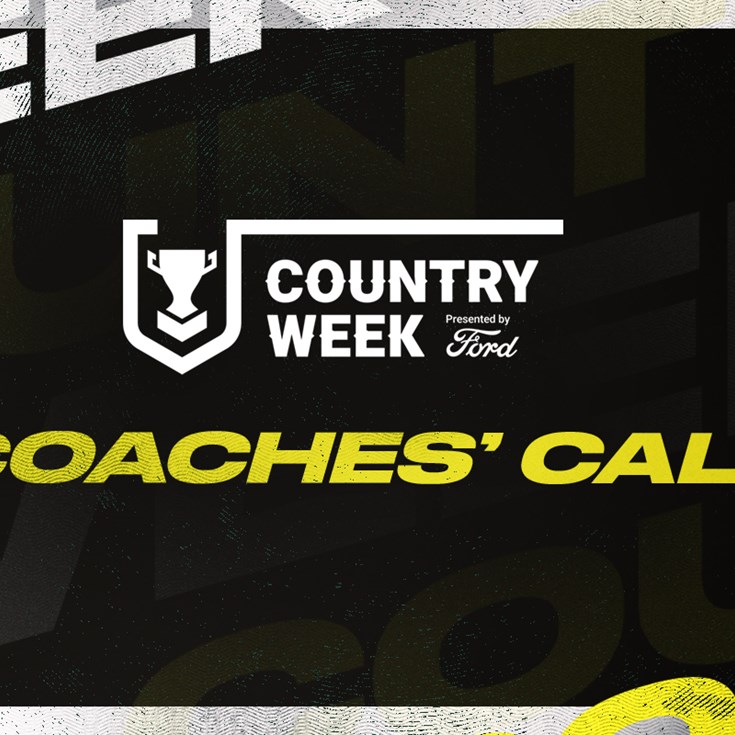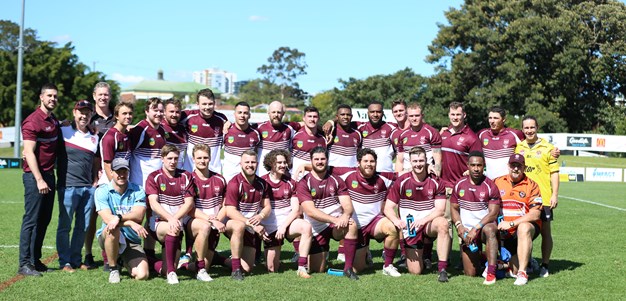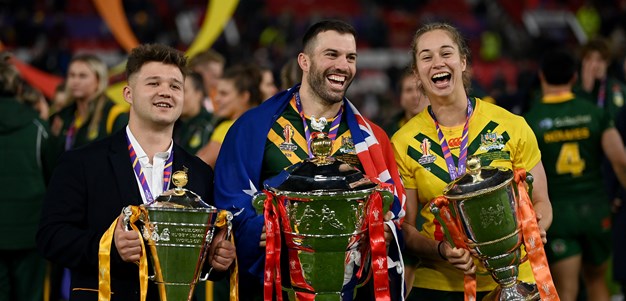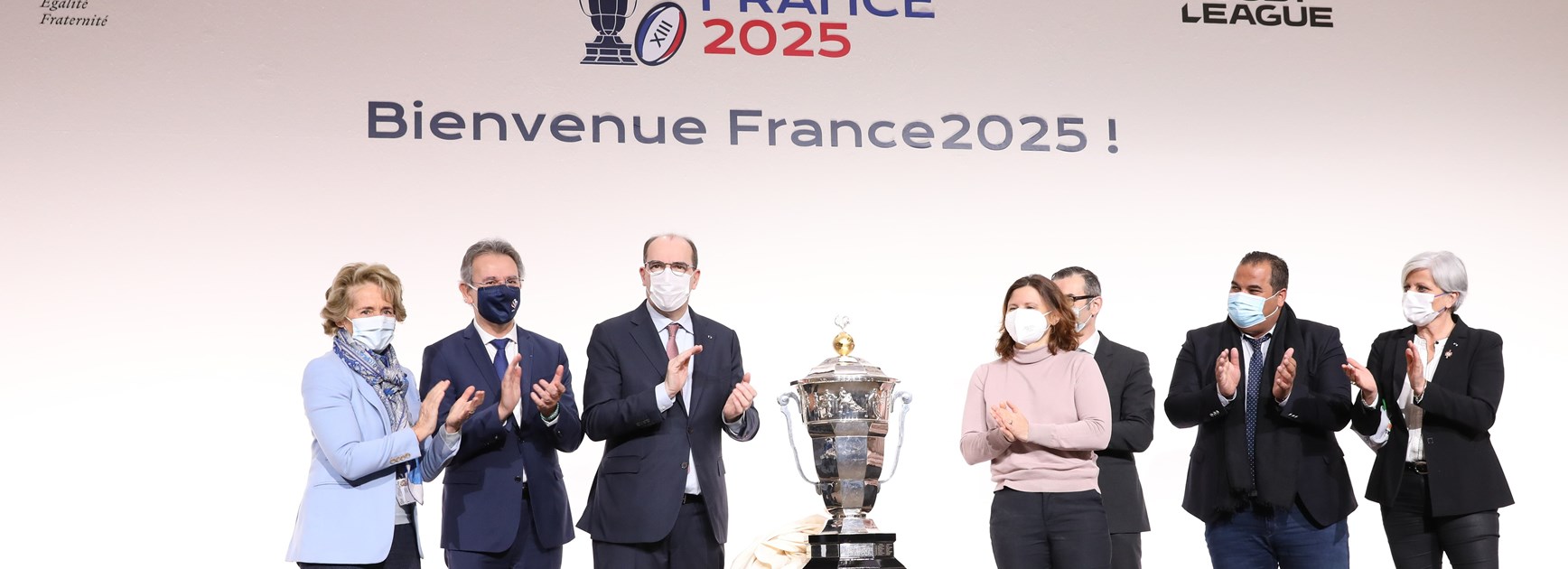
After announcing his government’s “unreserved support” for the 2025 World Cup in France, French Prime Minister Jean Castex pointed to the Paul Barrière Trophy and declared: “The Rooster you can see on the top of the trophy is going to sing again in 2025”.
Castex made the quip as he posed with FFRXIII president Luc Lacoste and the 16kg trophy surmounted with a Gallic rooster, which was created for the inaugural tournament in France in 1954, after a press conference in Paris on Tuesday night (AEST).
The 17th edition of the World Cup will be the biggest yet, with men’s, women’s, wheelchair and youth tournaments each comprising of 16 teams to be played in 40 cities and towns in every region of France.
Sydney Roosters coach Trent Robinson, who is the FFRXIII director of coaching and has previously had charge of Toulouse and Catalans, addressed the media conference in fluent French.
Robinson said the World Cup was an opportunity for the people of France to rediscover their passion for the game.
“Rugby league is dynamic, combative and very lively,” Robinson said. “Australia, along with the other countries involved, is delighted to have this opportunity to compete here.”
Seven-times premiership winning mentor and 2023 Dolphins coach Wayne Bennett, Kangaroos coach Mal Meninga, his New Zealand counterpart Michael Maguire and South Sydney CEO Blake Solly were others who supported France’s bid to host the World Cup.
There will be 128 matches played in the four competitions during October and November 2025, with medium-sized cities to host the vast majority of matches and the semi-finals and finals to be played in big cities, such as Paris, Marseilles, Lyon and Toulouse.
Another 50 smaller municipalities will be selected to host the 64 teams, with 38 cities and towns having already applied to be venues for games or training bases.
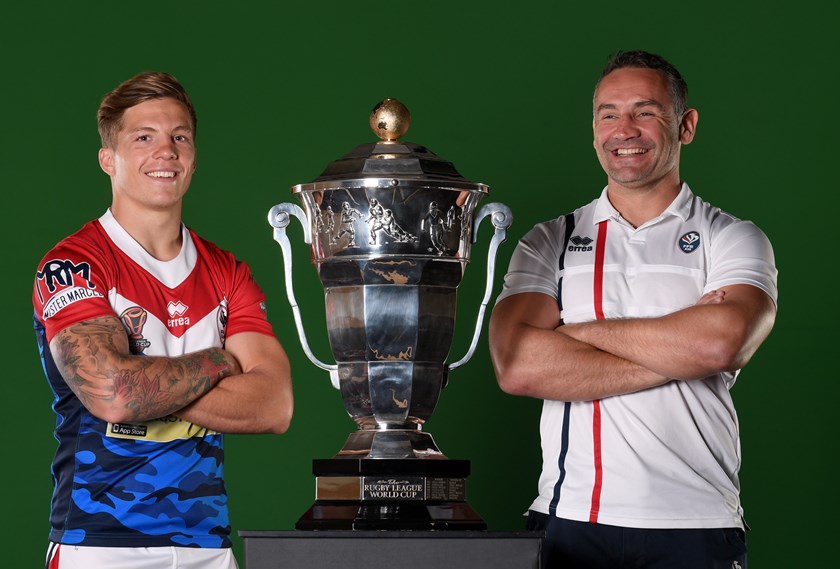
While it may seem ambitious to double the number of women’s and wheelchair teams at this season’s postponed World Cup in England from eight to 16 in just three years, there is potential for huge growth in both areas of the game.
Fiji, Italy and the USA are likely to be among the new women’s teams, possibly along with one or more African nations.
It will be the first time the World Cup has been hosted by France since 1972, when England retained the trophy after a controversial 10-10 draw in the final against Australia in which the game’s fifth Immortal, Graeme Langlands, was incorrectly denied a try.
The staging of the World Cup in France will provide a massive boost to the game in a nation which was once ranked No.1 at Test level and had to overcome being banned and having its assets transferred to rugby union by the Vichy Government in 1941.
In a sign of how much things have now changed, Castex declared himself a supporter of both codes and praised the defiance of rugby league supporters in France.
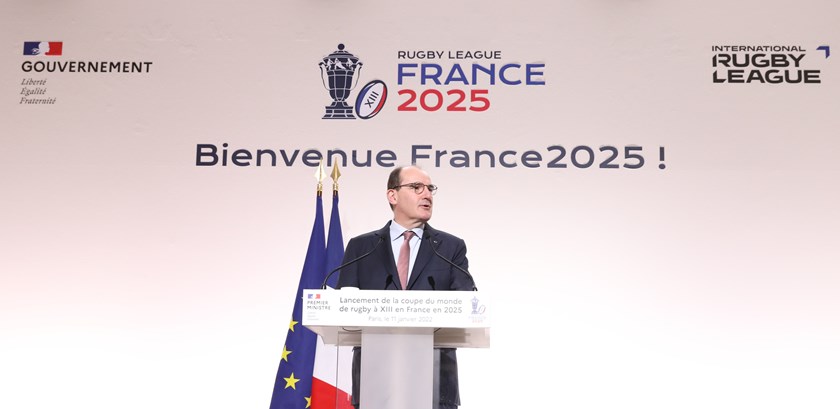
“It was indeed in France that the idea for a Rugby League World Cup was first mooted in 1934,” Castex said.
“This did not come to fruition but even in those days the promoters and advocates of the sport were very determined and I must say that they managed to actually overcome the ban of the sport under the Vichy regime and this whole project was picked up by the president of FFRXIII, Paul Barrière, after World War II.
“It was only in 1954 that the first Rugby League World Cup was held in France, with the final played at the Parc de Princes [in Paris]. Let’s not mention that France got beaten by England but still there were 30,000 people in the stadium … and it is high time that the World Cup came back to France.”
The 2025 World Cup will follow the 2023 Rugby World Cup in France and the 2024 Paris Olympic and Paralympic Games.
The three events will be used to reinforce France’s standing as the most touristed country in the world and to drive participation in sport, with Lacoste revealing targets to increase the number of clubs by 25 per cent, quadruple female participation and triple the number of wheelchair players.
Castex told Lacoste: “I think we have to hope that this will draw new people to your sport, that those who are already committed feel more motivated and seeing as we are playing at home let’s hope we can be as good as possible. Organising major sporting events in France must be a cause for national pride.”
Since taking charge of the FFRXIII in 2020, Lacoste has overseen a reversal of the game’s decline in France, which hit rock bottom when the French Test team were thrashed 68-4 by the Junior Kangaroos at WIN Stadium at the end of the 2019 season.
Catalans won the Super League Leaders Shield as minor premiers last year and lost the club’s first grand final 14-12 against St Helens, while Toulouse won promotion to Super League after an unbeaten Championship season.
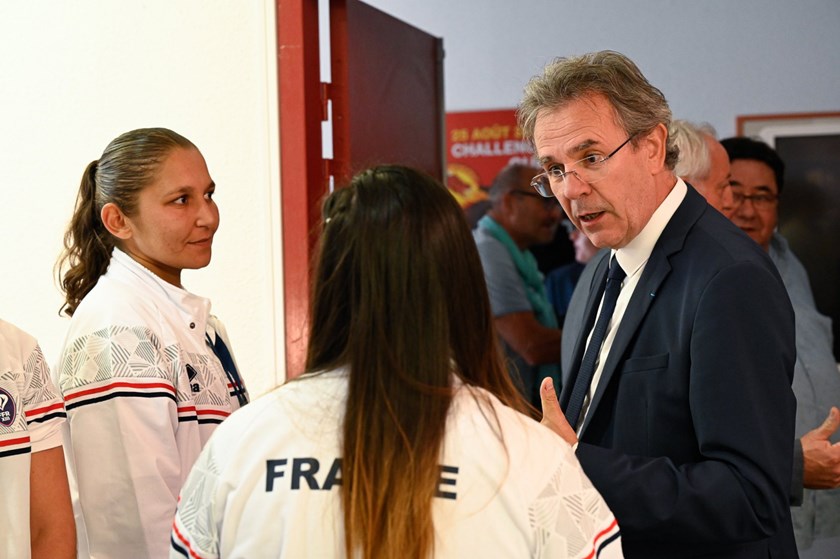
“The World Cup will be an accelerator for the transformation plan of the French Rugby League Federation; a plan that aims to grow our sport, not only with more federation members, in more clubs and in more cities, but both professionally and diffusely as well,” Lacoste said.
IRL chairman Troy Grant was the driving force behind France hosting the 2025 World Cup.
“The rebirth of international rugby league in France has been a strategic goal of our sport for many decades and I am delighted that it will now become a reality through this award of the 2025 World Cup to France,” Grant said.


